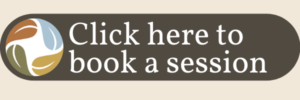“When I get older, losing my hair, many years from now
Will you still be sending me a Valentine, birthday greetings, bottle of wine?
If I’d been out till quarter to 3, would you lock the door?
Will you still need me? Will you still feed me when I’m 64?”
Beatles’ Song When I’m 64
Like many in my generation, The Beatles’ songs shaped many of my early perspectives on life. As I entered my 64th year, I wondered how much this song had influenced my expectations about marriage. I never questioned how long my marriage would last – I just assumed that it would. This song still has the power to bring up questions about how my relationship will weather the challenges of aging, changing finances, dependence/independence, and health issues in this uncharted season of my journey. Will my mate still need me, feed me, trust me when I’m 64?
Healthy relationships begin when parents carefully observe and accommodate their lives to their newborn children. They take time to study their children, noting their individual learning styles, personalities, strengths, and vulnerabilities. They become experts on each child, knowing what can make each of them feel bad or good, unwanted or loved. They learn to prevent or repair relationship problems with their children.
Continuing the work begun by John Bowlby, psychologist Stan Tatkin uses a helpful word picture to describe how securely or insecurely we attach to others. Healthy parents who form secure connections with their children act as anchors for their children in the storms of life. Securely connected children then look for and develop healthy relationships and act as anchors for those they love as adults. Those of us who did not have anchored attachments with our parents have to learn these skills, however. Otherwise, instead of being anchors for those we love, we act as waves or islands with them.

We who act as waves in relationship show our fears of being separated from or abandoned by those we love. We’re uncomfortable with being alone for very long, and we fear burdening others with our needs. This conflicted insecurity drives us to pursue our mates at all costs, never quite trusting them to support us. Wave relationships feel like being covered by strong waves that overwhelm one minute, then leave us standing on shifting sand the next.
When we act as islands in relationship with others, we reveal our fears of being intruded upon, blamed by, or absorbed into others’ lives. Because we fear being overpowered by others, we create stationery, inaccessible fortresses around our hearts. Island relationships result in feeling disconnected, distant, unnecessary, and alone. In both island and wave relationships, we are distanced from and unrecognized for who we really are by the very ones we desire to know and love us.
Healthy relationships don’t just happen when the “right” people connect, any more than a successful voyage is guaranteed by a sound boat. Anchored relationships are the result of patiently plowing through the waves of daily life together, searching out new ways of communicating, leaving familiar shores to explore the unknown places in a loved one’s heart.
- Take the time to study your mate. (We all need maps to find our way.)
- Ask for feedback on what you observe, knowing that your mate is changing over time, not just you. (Learn how to read the weather.)
- Commit your time and your heart to growing a secure, trusting, nurturing relationship. (Couples counseling can be a useful compass here.)
I like this description offered by John Gottman, PhD, and Nan Silver:
Enduring love comes when we love most of what we learn about the other person and can tolerate the faults they cannot change.
Such healthy intimate relationships have been shown to improve physical health, protect mental and emotional resilience, and lengthen lives. Let’s focus on growing closer to our mates this holiday season! It’s well worth the effort.
If you are interested in talking to Karen Bridges, or one of our other amazing therapists, click here to schedule a session online. If you feel more comfortable, or have further questions, feel free to call our office at (970) 490-1308 and we will be happy to assist you in finding the right counselor for you.



